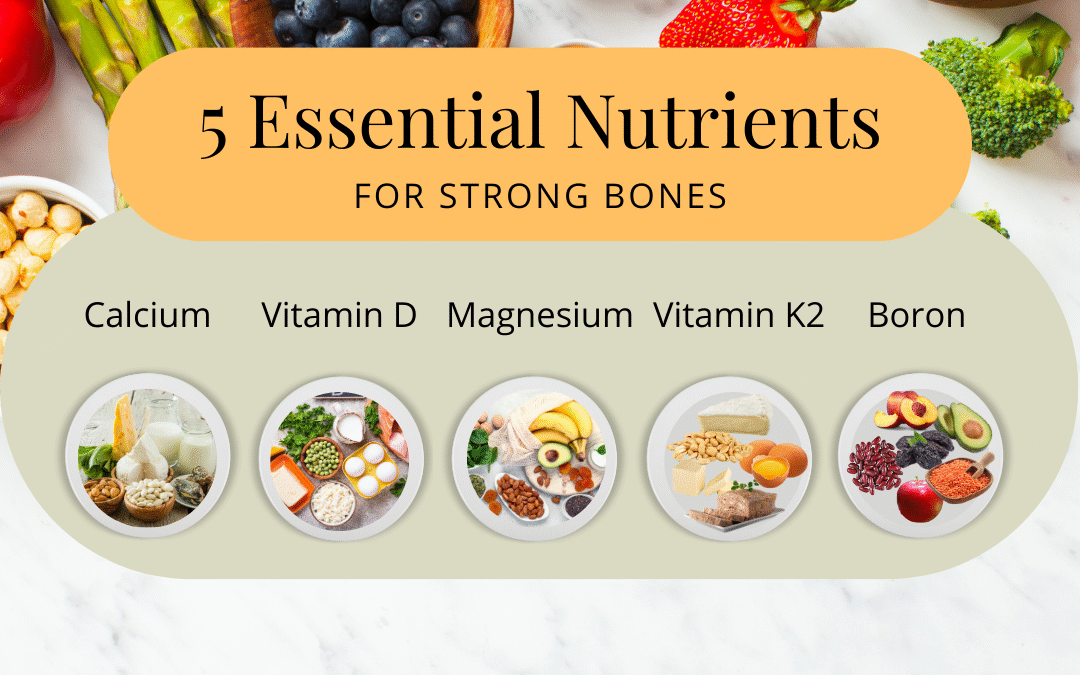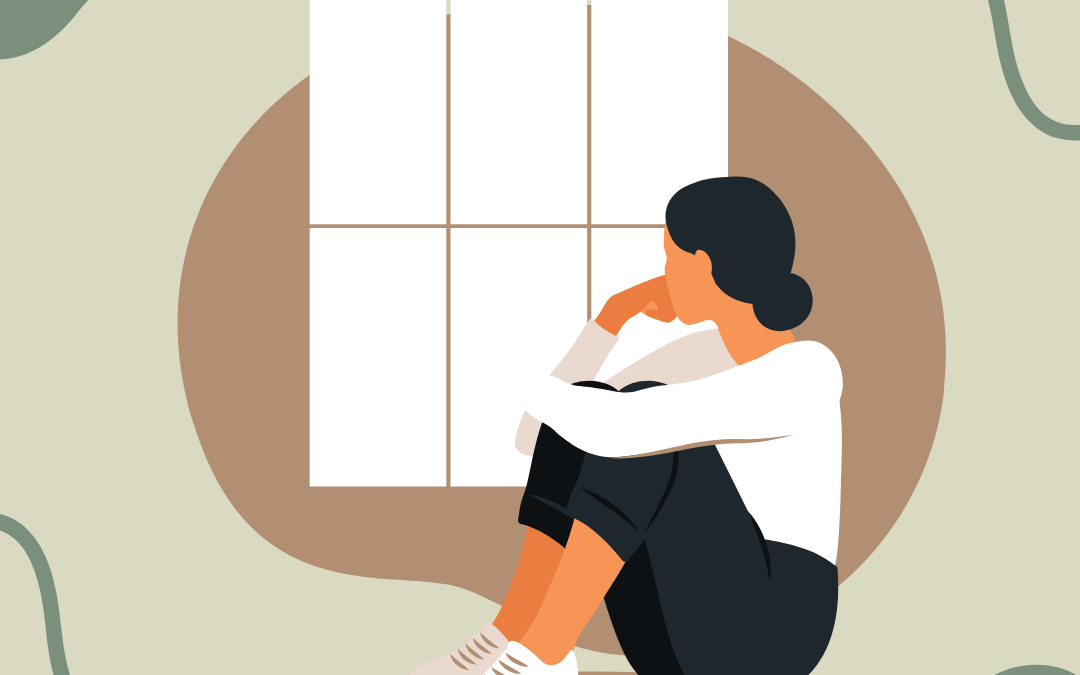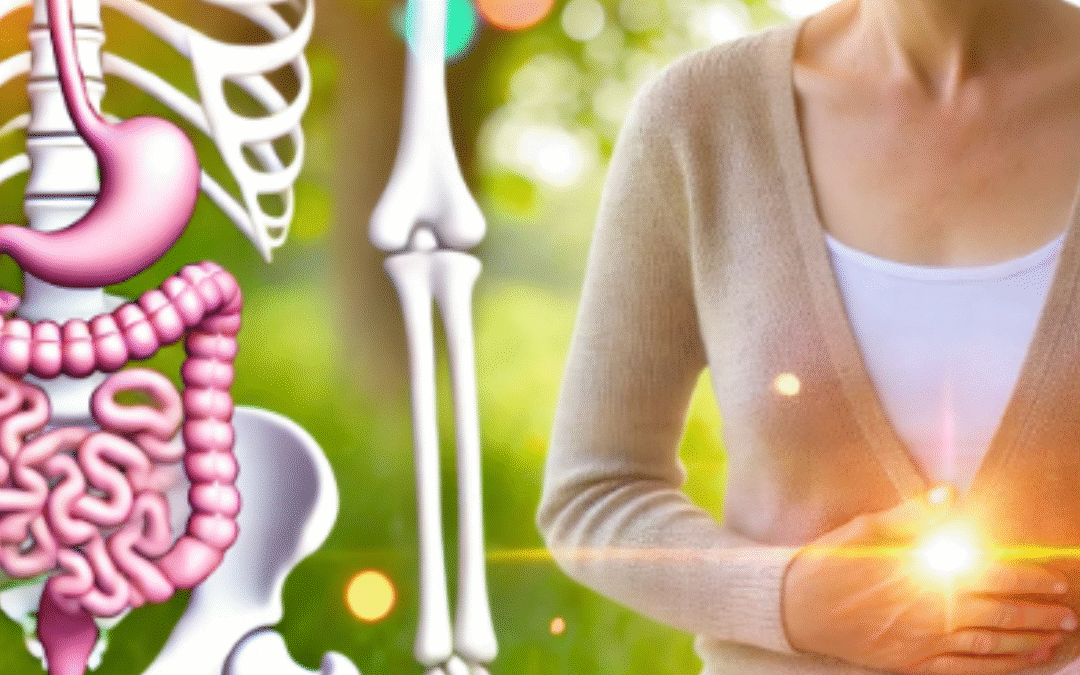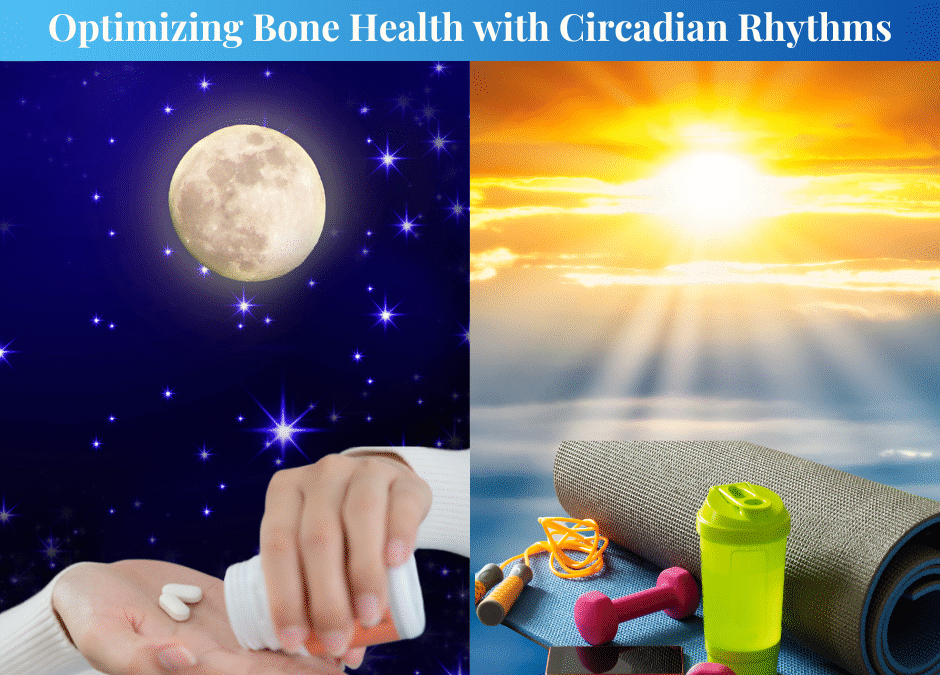
5 Essential Nutrients for Strong Bones (And Why Calcium Isn’t Enough)
When it comes to bone health, calcium is often the star of the show. But while calcium is critical, it’s only one piece of the puzzle. Your bones need a range of nutrients to stay strong and healthy.

Let’s explore five essential nutrients for bone health…a few key ways they support bone health—and why a holistic approach is key to preventing fractures and maintaining bone strength.
- Calcium: The Building Block of Bones
Calcium is the most abundant mineral in the body, with 99% of it stored in your bones and teeth. It forms a crystalline structure called hydroxyapatite, which gives bones their hardness and strength.
Beyond structure, calcium plays several vital roles:
- Bone Remodeling: Bones constantly renew themselves through a process where old bone is broken down and replaced by new bone. Calcium is essential for this.
- Calcium Bank: Bones act as a reservoir, releasing calcium into the bloodstream when levels are low to support critical functions like muscle contractions and nerve signaling.
Calcium is undeniably important, but it needs partners to do its job effectively—this is where the other nutrients come in.
- Vitamin D: Calcium’s Partner in Crime
Vitamin D is essential for absorbing calcium from your food and directing it to your bones. Without it, even a calcium-rich diet won’t support strong bones.
- Bone Mineralization: Ensures proper hardening of bone tissue.
- Fracture Prevention: Studies show that combining vitamin D (800–1,000 IU/day) with calcium can reduce the risk of fractures by 16%.
- Muscle Support: Helps maintain balance and reduce fall risk, especially in older adults.
But more isn’t always better. High-dose vitamin D supplements (4,000–10,000 IU/day) have been linked to decreased bone density and increased fracture risk. The key is finding the right balance, tailored to your needs.
- Magnesium: The Unsung Hero
Magnesium is vital for strong bones, yet it often flies under the radar. Around 50–60% of the body’s magnesium is stored in bones, where it supports:
- Calcium Regulation: Helps direct calcium into bones by activating calcitonin, a hormone that reduces calcium loss.
- Vitamin D Activation: Essential for synthesizing and activating vitamin D, which aids calcium absorption.
- Bone Mineral Density (BMD): Higher magnesium intake is linked to stronger bones in both men and women.
Magnesium also plays a role in reducing inflammation, which can otherwise interfere with bone remodeling.
- Vitamin K2: The Director of Calcium
Vitamin K2 ensures calcium ends up where it belongs—inside your bones, not your arteries or soft tissues.
- Activates Osteocalcin: A protein that binds calcium to bones, improving strength and mineralization.
- Regulates Bone Remodeling: Supports the balance between bone-building (osteoblasts) and bone-resorption (osteoclasts).
- Reduces Fracture Risk: Studies link low vitamin K2 intake to higher fracture rates.
Vitamin K2 also works synergistically with calcium and vitamin D, making it a critical component of any bone health strategy.
- Boron: The Little-Known Nutrient with Big Benefits
Boron may not get much attention, but it plays a surprisingly important role in bone health:
- Enhances Calcium Retention: Reduces calcium loss, helping maintain bone density.
- Boosts Vitamin D Levels: Improves how your body absorbs and utilizes vitamin D.
- Supports Magnesium Balance: Helps retain magnesium, which is essential for strong bones.
- Hormonal Effects: Increases levels of bone-protective hormones like estradiol and testosterone.
Boron’s ability to influence multiple nutrients and processes makes it a powerful ally for your bones.
The Bottom Line: A Holistic Approach to Bone Health
While calcium is a cornerstone of bone health, it’s only part of the story. Your bones need the support of vitamin D, magnesium, vitamin K2, and boron to stay strong and resilient. Together, these nutrients work synergistically to promote bone density, prevent fractures, and support overall skeletal health.
Curious to learn more about what your bones need—and the common myths that may be holding you back? Join my upcoming webinar, “7 Myths About Osteoporosis,” where I’ll dive deeper into the misconceptions surrounding bone health and share actionable tips to protect your bones at any age.









